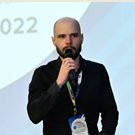Space Machines: Advances in CubeSats, Small Satellites and Satellite Development
A special issue of Machines (ISSN 2075-1702). This special issue belongs to the section "Robotics, Mechatronics and Intelligent Machines".
Deadline for manuscript submissions: closed (31 March 2024) | Viewed by 414
Special Issue Editors
Interests: optimization; deep learning; space systems
Special Issue Information
Dear Colleagues,
This Special Issue aims to showcase the latest advancements in the design, development, and deployment of CubeSats, small satellites, satellites, and their subsystems. The objective is to bring together researchers and engineers from various fields, including automation and control systems, mechatronics, robotics, human–machine interfaces, machine vision, and machine learning, to highlight their contributions to the field of space technology.
This Special Issue will cover topics such as the design and development of CubeSats, small satellites, and satellites; automation and control systems for these space machines; human–machine interfaces (ground station segment); machine vision; and the application of machine learning and AI algorithms in space.
It will also feature articles on the history of CubeSats and small satellites and their impact on space technology, testing and validation diagnostics and prognostics, and the design and development of space machine components.
We seek original research papers covering a wide range of topics, including but not limited to the following:
- Space machines design and development;
- Space machines technologies and applications;
- Space machine automation and control systems (including attitude control);
- Mechatronic systems for space machines;
- Human–machine interfaces for CubeSats and small satellites (including ground station segment);
- Machine vision for CubeSats and small satellites;
- Machine learning and AI algorithms for space applications;
- The history of CubeSats and small satellites and their impact on space technology;
- Testing, validation and diagnostics and prognostics for CubeSats and small satellites;
- Space machine components design and development.
Prof. Dr. Laio Oriel Seman
Prof. Dr. Eduardo Augusto Bezerra
Guest Editors
Manuscript Submission Information
Manuscripts should be submitted online at www.mdpi.com by registering and logging in to this website. Once you are registered, click here to go to the submission form. Manuscripts can be submitted until the deadline. All submissions that pass pre-check are peer-reviewed. Accepted papers will be published continuously in the journal (as soon as accepted) and will be listed together on the special issue website. Research articles, review articles as well as short communications are invited. For planned papers, a title and short abstract (about 100 words) can be sent to the Editorial Office for announcement on this website.
Submitted manuscripts should not have been published previously, nor be under consideration for publication elsewhere (except conference proceedings papers). All manuscripts are thoroughly refereed through a single-blind peer-review process. A guide for authors and other relevant information for submission of manuscripts is available on the Instructions for Authors page. Machines is an international peer-reviewed open access monthly journal published by MDPI.
Please visit the Instructions for Authors page before submitting a manuscript. The Article Processing Charge (APC) for publication in this open access journal is 2400 CHF (Swiss Francs). Submitted papers should be well formatted and use good English. Authors may use MDPI's English editing service prior to publication or during author revisions.






